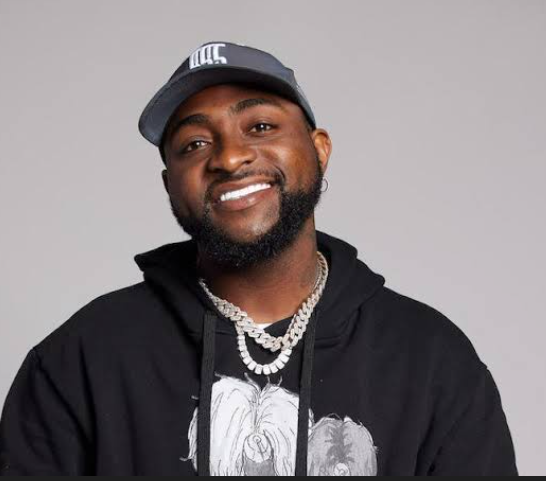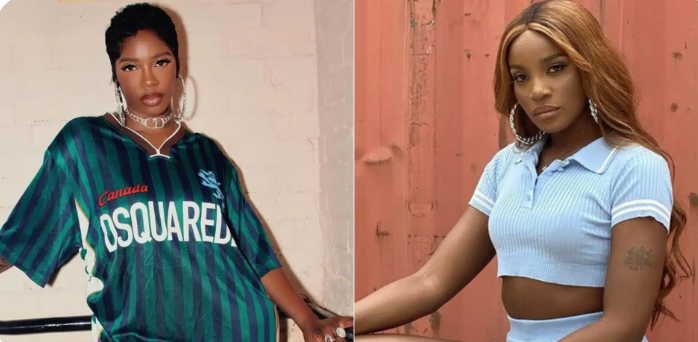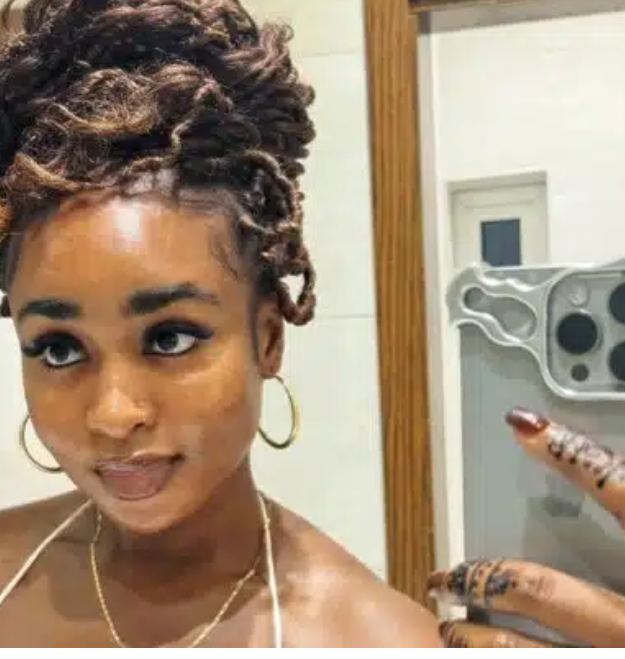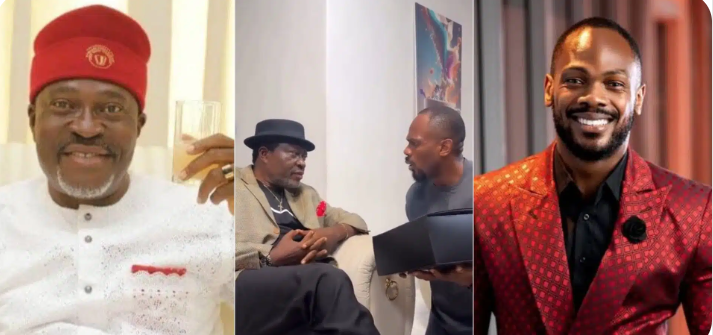
“I Am Igbo by Blood” — Davido Fires Back at Tribal Remark Over Hosting Bright Chimezie

In a moment that has stirred both cultural pride and online controversy, Nigerian superstar Davido has sparked a major conversation after boldly declaring “I AM IGBO by blood” in response to a tribal remark targeting his recent association with legendary highlife singer Bright Chimezie. The Afrobeats icon, who is of Yoruba descent, stood his ground on social media platform X (formerly Twitter), after a user criticized him for being too cozy with the Igbo community.
It all began when Davido, known for his flamboyant style and deep cultural roots, hosted veteran highlife musician Bright Chimezie — a respected icon in the southeastern music scene. The meeting was shared online through videos and pictures that quickly went viral, with fans lauding the heartwarming exchange between two generations of Nigerian music. But what was meant to be a simple celebration of music and cultural unity soon took a controversial turn.
A user with the handle @Yakbel posted a now-deleted tweet that slammed Davido for “frolicking with Igbos,” suggesting that the singer’s association with the Igbo people was misguided and dangerous. “Davido just dey carry Igbo full body, until when dem betray am before e rest,” the user wrote in Pidgin English, implying that Davido’s trust in the Igbo community would eventually lead to betrayal. The post continued with, “Yoruba boy dey frolick with Igbos in 2025, they want your head and everything you have to belong to them… IBOs are not people you surround yourself with as a Yoruba man.”
The tweet sparked immediate outrage from many users who found the comments not only divisive but deeply rooted in tribal prejudice — an issue that has long plagued Nigerian politics, entertainment, and society at large. But it was Davido’s sharp and succinct response that caught everyone’s attention. “lol I AM IGBO by blood,” the artist replied, a clapback that has since garnered massive support and reignited discussions about identity, unity, and the responsibilities of celebrities in promoting national cohesion.
While many were quick to applaud Davido for standing up against tribal bigotry, others were fascinated by the personal revelation. Known as David Adeleke, the singer hails from a wealthy Yoruba family, with his father Adedeji Adeleke being one of Nigeria’s most prominent businessmen. However, his claim of having Igbo blood has piqued interest in his maternal heritage. Some netizens pointed out that Davido’s mother, Veronica Adeleke, might have had Igbo roots, though the singer himself has rarely spoken publicly about this aspect of his identity until now.
This declaration has turned into more than just a clapback — it’s now a defining moment in Nigeria’s ongoing dialogue about unity in diversity. Davido’s response transcends entertainment gossip and strikes at the heart of a national struggle: the tension between ethnicity and identity. In a country where tribalism has too often driven political decisions, ignited violence, and stifled social progress, one of the biggest music stars proudly claiming a dual heritage sends a powerful message.
The timing couldn’t be more significant. Nigeria has seen a rise in ethnic tensions over the past few years, especially during the 2023 elections, where tribal rhetoric influenced voter sentiments and sparked nationwide debates. Social media has amplified these divisions, turning platforms like X into battlegrounds for ethnic superiority contests. But voices like Davido’s serve as a reminder that national unity doesn’t require the erasure of identity — rather, it demands an embrace of shared heritage.
The reaction to Davido’s statement was swift and emotional. Celebrities, fans, and cultural commentators weighed in, many praising the singer for using his platform to preach inclusivity. One user wrote, “This is how you shut down hate — with pride and facts.” Another said, “Davido just gave a masterclass in how to handle tribal hate. We are Nigerians first before any tribe.”
Even fans who had previously criticized Davido for staying out of political conversations found his tweet a welcome surprise. Some viewed it as a subtle form of activism — not through a protest song or an angry rant, but with a simple declaration of pride in his roots. It was a moment that managed to unite both Yoruba and Igbo fans under a banner of shared appreciation and mutual respect.
Bright Chimezie himself has not responded publicly to the controversy, but his presence in the entire saga remains important. Known for his Ziggima sound and decades-long contribution to Nigerian music, Chimezie represents the cultural richness that Nigeria has to offer when divisions are set aside. That Davido chose to honor and associate with such a legend only adds depth to the gesture.
The incident also sheds light on the complexities of celebrity life in Nigeria, where every move — especially those involving cultural associations — is closely scrutinized. For someone of Davido’s stature, even a meeting with a respected elder can be politicized, racialized, or spun into controversy. Yet, it’s his consistent openness and fearlessness that keep fans coming back. Davido has never shied away from expressing love for Nigeria in all its diversity, and this moment is yet another chapter in his evolving story of influence.
As the dust begins to settle on this episode, one thing is clear: Davido’s unapologetic embrace of his mixed heritage has sent a ripple effect across the internet and beyond. It challenges fans, critics, and the public to look beyond tribe, to value individuals not by ethnicity, but by character and contribution. It’s a wake-up call in a country often divided by lines it drew for itself — a call to remember that music, love, and humanity know no tribe.
In the end, Davido didn’t just respond to a tweet. He made a statement. And in doing so, he reminded millions of Nigerians that bloodlines can be bridges — not barriers — when embraced with pride and purpose.


